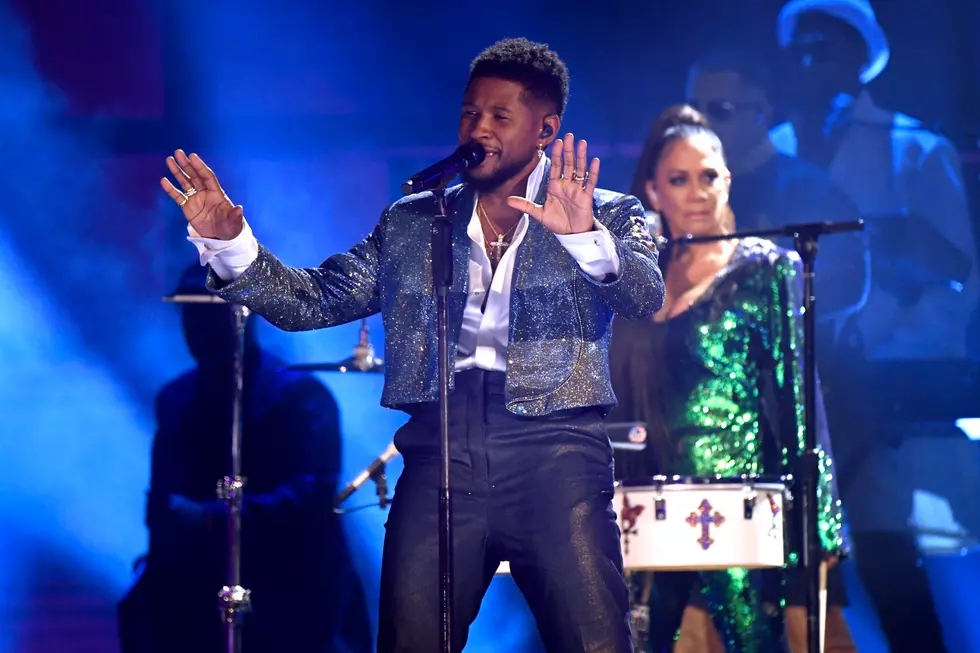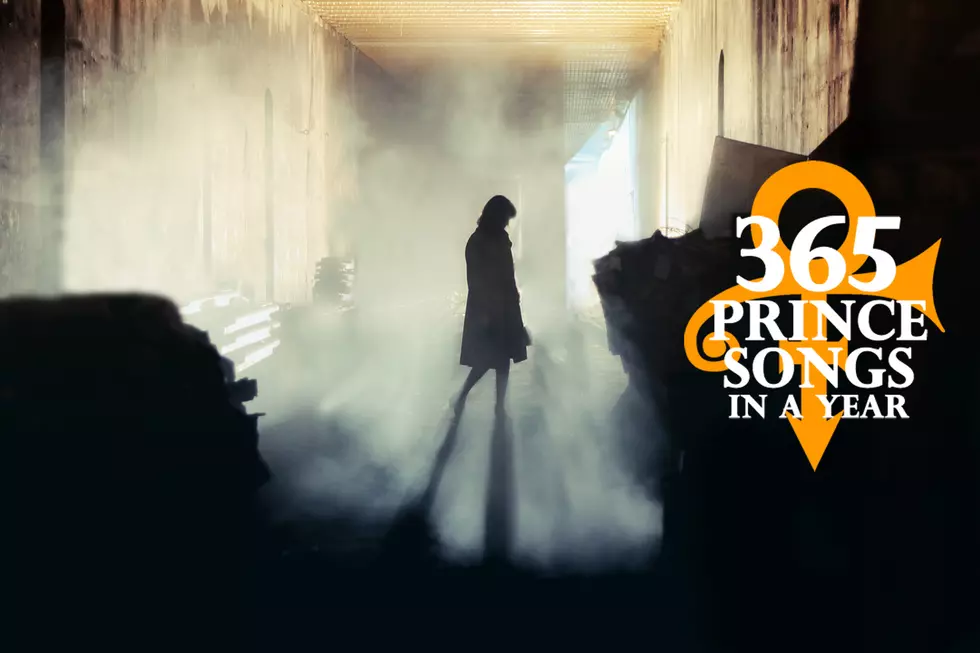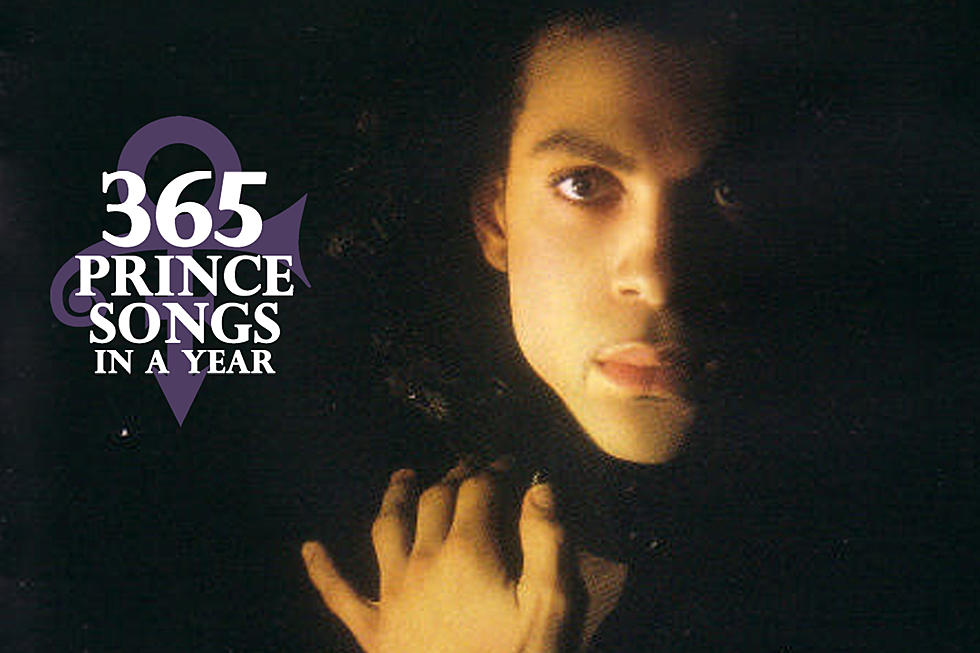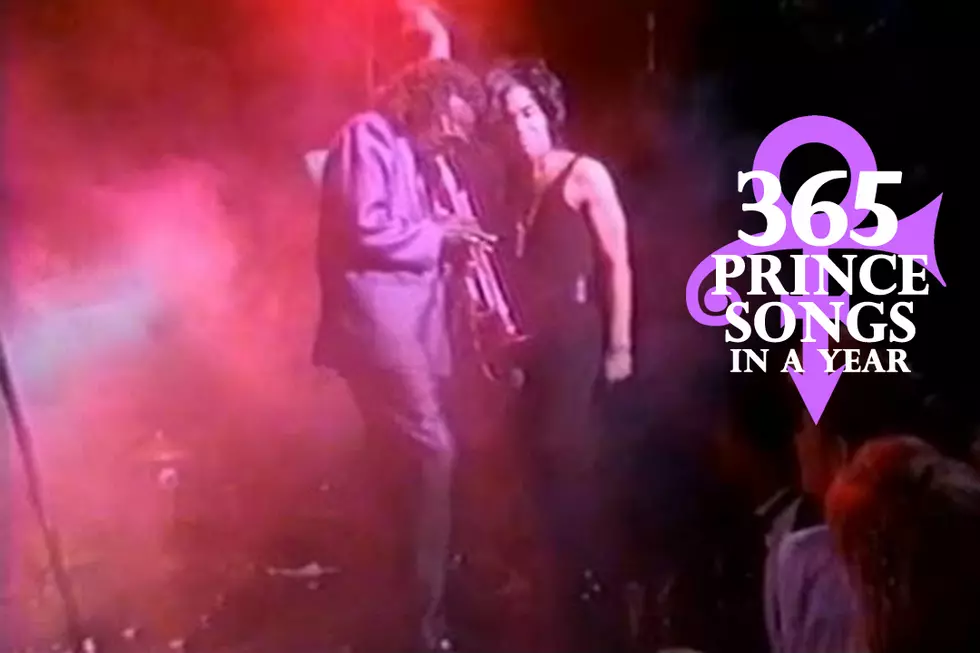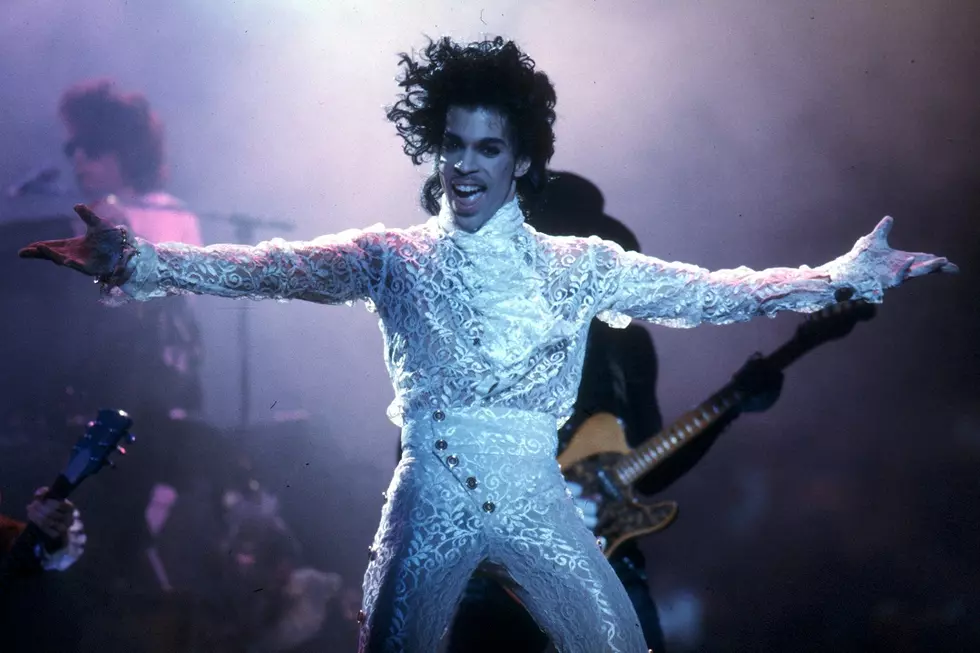Prince Goes to Great Lengths on ‘The War': 365 Prince Songs in a Year
To celebrate the incredibly prolific, influential and diverse body of work left behind by Prince, we will be exploring a different song of his each day for an entire year with the series 365 Prince Songs in a Year.
For all of Prince's experimentalism, he still, more often than not, worked within the structures of a traditional pop song format. But he broke those rules with 1998's "The War" which, at 26 minutes, is the longest track that he officially released.
And even that's an edited version. PrinceVault says that it was originally a 45-minute song performed by Prince and the New Power Generation at Paisley Park on June 20, 1998. A month later, he offered it as a download on his website Love4OneAnother.com, and later sent a cassette of it to those who experienced delays receiving his Crystal Ball compilation.
"The War" is a sparse track over which the NPG vamps over one chord for the duration, and features a lengthy guitar solo that's about as close as Prince ever came to free jazz. The lyrics, which aren't so much sung by Prince as they are preached, are among his angriest, accusing the government of repeatedly lying, putting microchips in peoples' necks and infecting the African American community with the HIV virus. "U give me AIDS, your history / When it comes 2 mine, another name / Many die and this is true / Red, black, yellow, even Jew / Claimin' God was backin' U," he sings.
More than anything else, it's a spiritual heir to the work of Gil Scott-Heron, who rose to fame in the '70s by mixing jazz, spoken word poetry and social commentary and is considered a progenitor of hip-hop thanks to songs like "Home Is Where the Hatred Is" and "Whitey on the Moon." The chant of "Evolution will be colorized" that runs throughout "The War" is a nod to Scott-Heron's most famous song, "The Revolution Will Be Televised."
Gil Scott-Heron Performs "The Revolution Will Not Be Televised"
Prince wasn't a newcomer to Scott-Heron's work. Certainly the track "Sign O' the Times" had been influenced by him, and back in 1991, he asked NPG rapper Tony M. to come up with a “Gil Scott-Heron thing on black-on-black crime, cops, and the community" for an undetermined song. Tony M. told GQ. “I think black awareness is really taking an upturn today and he really wants to be a part of that.”
Prince's concern for the African American community continued throughout his life, and he vocally supported the Black Lives Matter movement. In 2015, the death of Freddie Gray while in the custody of Baltimore police prompted the writing of "Baltimore," which Prince performed at the Rally 4 Peace upon its release and speaking about economic empowerment.
"The system is broken," he said at the time. "It's gonna take the young people to fix it this time. We need new ideas. We need new life. Most of all, we need new peace. The kind of peace I'm talkin' about is P-I-E-C-E. Next time I come through Baltimore, I wanna stay in a hotel owned by one of you. I wanna leave the airport in a car service created and owned by one of you.”
In the immediate aftermath of Prince's death, stories about his philanthropic efforts -- donating millions to anti-poverty charities -- became public. As a Jehovah's Witness, he was not allowed to speak about his philanthropic efforts, and his donations were made on the condition that the source of the money remained anonymous.
"He was way beyond his time in terms of wisdom and addressing some major social, race, racism issues in our country," Michelle Basham, the executive director of his Love 4 One Another Charities, told Minnesota Public Radio. "But he also really lived his values. He gave money to charity but he did it without asking for credit."
Prince Year by Year: 1977-2016 Photographs
More From WDKS-FM
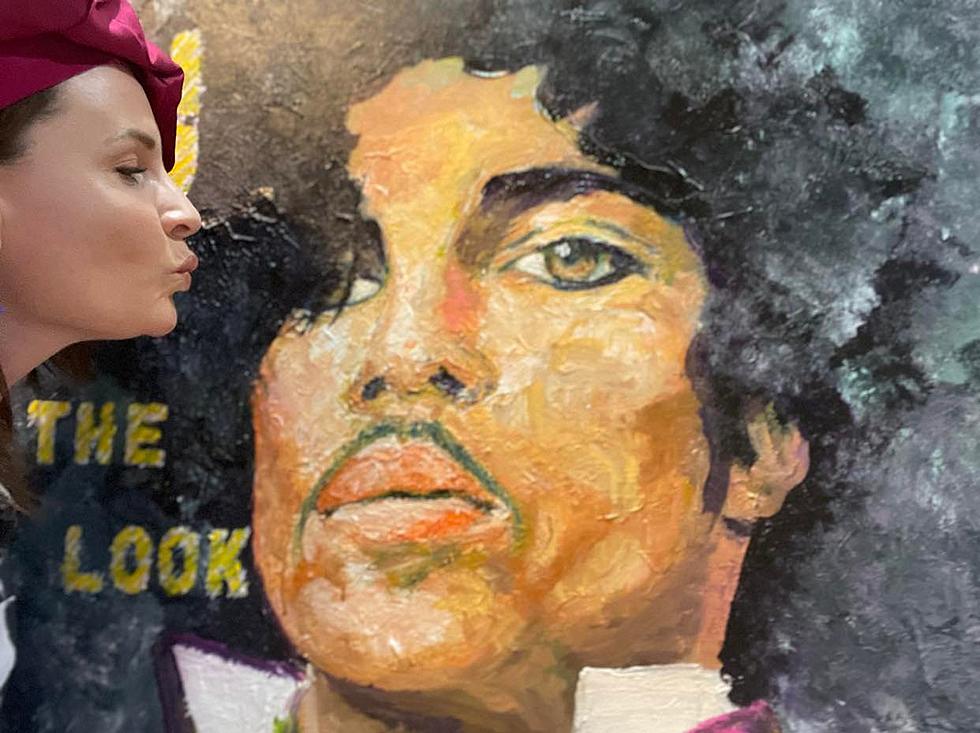
![The Five Best Versions of “Purple Rain” Not Performed by Prince [Video]](http://townsquare.media/site/782/files/2020/06/KPJ.jpg?w=980&q=75)
